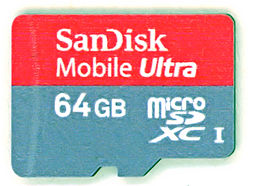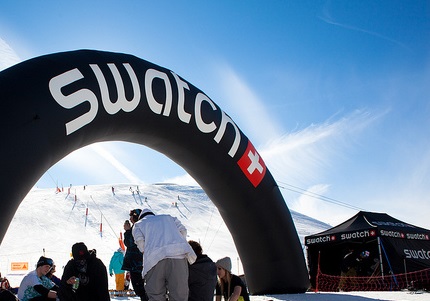Weekly tech bulletin for week ending on 2015-05-10. 11 Technology news as it happened.
Published: Sun, 10 May 2015 by Rad
1. Google Backs Rival of Docker, the Cloud’s Next Big Thing
Published: May 04, 2015 tech

Google has put its considerable weight behind rkt
Google has put its considerable weight behind this effort, officially joining the Rocket open source project and rolling the technology into one of its cloud computing tools.
CoreOS founder and CEO Alex Polvi felt that Docker had strayed from its original mission, and with Rocket, he and his colleagues hoped to bring that mission back to the fore.
Ironically, Google also offers cloud computing services a la Amazon, and it was the first big-name cloud company to embrace Docker. But now, Google is backing Rocket as well, rolling the technology into its Kubernetes cloud computing software.
With Rocket, CoreOS hopes to provide a new container standard that’s outside the control of any one company. In addition to Google, Polvi says, other big names are getting behind the project, including Red Hat and VMware. And Mark Kropf, of VMware spinoff Pivotal, tells WIRED that his company is working to accommodate Rocket as well. At the very least, Rocket’s initial progress is another sign that the container idea will change the way the world builds software.
Follow www.wired.com to read more.
2. The Real Reason Why Micro SD Card Slots Are Disappearing from Smartphones
Published: May 08, 2015 tech

For high performance devices, we are fundamentally against an SD card slot
The reason that smartphone manufacturers are ditching micro SD card slots in their devices, especially at the high end, is money. Manufacturers can't charge a premium for an SD card slot, but they can charge a $100 for a few extra gigabytes of flash storage.
For the consumer, this means having to decide up front how much storage they plan to need over the lifespan of the device, and a lot of hassle or even early obsolescence if space becomes an issue.
If there's an SD card slot on the device, then many users would buy the lowest-cost (and lowest margin) device, and boost that with a cheap micro SD card. It won't be as fast as internal storage, but for music, video, or apps that don't demand a high level or performance, it's going to be more than adequate.
Follow www.yahoo.com to read more.
3. Microsoft to stop producing Windows versions
Published: May 08, 2015 software
Windows 10 is going to be the last major revision of the operating system.
Instead of new stand-alone versions, Windows 10 would be improved in regular instalments, the firm said. In a statement, Microsoft said Mr Nixon's comments reflected a change in the way that it made its software.
"Windows will be delivered as a service bringing new innovations and updates in an ongoing manner. We expect there to be a long future for Windows"
Jerry Nixon, a Microsoft development executive
Microsoft had in the past deliberately avoided using the name "Windows 9" and instead chose Windows 10 as a way to signify a break with a past which involved successive stand-alone versions of the operating system.
Follow www.bbc.co.uk to read more.
4. Mumblehard Malware Mugs Linux Servers
Published: May 05, 2015 security
However, it apparently targets Linux Web servers the most. To fend off Mumblehard, administrators of Linux systems can encrypt their data, suggested Secure Channels CEO Richard Blech.
Dubbed Linux/Mumblehard, the malware contains a backdoor and a spamming daemon, both written in Perl. The components are mainly Perl scripts encrypted and packed inside an executable and linkable format, or ELF, said Eset. In some cases, one ELF executable with a packer nests inside another.
Writing ELF binaries in assembly language obfuscates the Perl source code and shows an above-average level of sophistication, security firm Eset noted. Mumblehard's main purpose appears to be sending pharmaceutical spam from legitimate servers it takes over.
Follow www.technewsworld.com to read more.
5. Swatch says it’s working on revolutionary battery for smartwatches and cars
Published: May 07, 2015 tech

The first smartwatch that lasts six months on a charge has a major advantage
Swatch announced that it would introduce new watches with NFC (for contactless payments) and Bluetooth (to display notifications from your smartphone). The first of those watches, the Touch Zero One is meant to arrive later this month and cost $160 (~£100), but presumably some other smarter Swatch watches are on the way too.
Swatch implies that Swatch and Renata (Swatch's battery company) are working on a battery that can power a smartwatch for six months.
Given that current smartwatches only last for a day or two on a single charge, and that battery capacity only generally increases by around 10 percent per year, a smartwatch that lasts six months would be a stretch
Follow arstechnica.com to read more.
6. Uber Bids For Nokia's HERE Mapping Service For $3 Billion
Published: May 08, 2015 tech
Mapping data is an important long-term asset for the auto industry
Uber's move isn't surprising, given it's clearly looking to move way beyond its initial business focus. It has indicated interest in developing driver-less vehicles.
Uber, however, is facing some stiff competition in courting HERE as a group of automakers is also clearly interested in scooping up HERE. The group includes Mercedes-Benz, BMW and Audi, and Chinese search engine Baidu is also supposedly onboard with the group.
According to a news report, Nokia's HERE boasts more than an 80 percent worldwide market share for in-car navigation systems yet its numbers are not nearly as high for smartphone users. In that space, Google Maps has captured 1 billion mobile users, about 10 times more than Nokia's mobile app user base.
Follow www.techtimes.com to read more.
7. Samsung is spending $14 billion to build a Samsung Semiconductor Valley
Published: May 08, 2015 markets
Semiconductor business can't be beat
Unlike the smartphone industry, where companies like Huawei and Xiaomi have been able to undermine Samsung by operating at razor-thin profit margins, this isn't a business that's open to newcomers. Samsung's decision to build a new facility, first reported by ET News and confirmed by The Verge, will only exacerbate this trend, locking out would-be competitors.
Although Samsung remains the world's biggest smartphone manufacturer in terms of volume, its semiconductor business is also the world's second largest after Intel.
Follow www.theverge.com to read more.
8. Microsoft Takes On Hybrid, Multi-Cloud Management With Operations Management Suite (OMS)
Published: May 06, 2015 tech
Different clouds not a problem
"You get orchestration, application availability, disaster recovery and backup," said Microsoft. "And you get all of that capability, on virtual, physical, public cloud, private cloud, hybrid cloud, VMware, HyperV all under one page of glass."
Brad Anderson, Microsoft's Corporate VP of Enterprise Client and Mobility
Microsoft outlined several key benefits of OMS, including:
- Automation and orchestration, allowing IT pros to automate repetitive tasks to create more efficiency in your data center
- Server and application availability, which integrates recovery of apps and services whether they're housed on premises or in the cloud
- Security, allowing IT pros to collect security-related events, identify malware, missing system updates and more
- Log analytics, allowing IT to collect and search multiple log data sources in order to gain visibility and solve operational problems
During the initial setup, you get to choose which solution packs you want to use. Next, you connect your on-prem and cloud data sources; here you can link to individual servers, your Azure Store account, or link to your existing System Center installation. You can also add custom logs.
Follow www.tomsitpro.com to read more.
9. US Secret Service Alerts InterContinental Hotel Group of Data Breach
Published: May 09, 2015 security
Payment processing system compromised for almost four months!
IHG was alerted of the breach by the US Secret Service and suggested Cities Service initiate an investigation to check if a security incident had occurred.
The company contracted the forensic services of Dell SecureWorks to determine evidence of malicious activity. Following the inquiry, it was established that a piece of malware had infected the payment system since October 13, 2014, until February 11, 2015.
The customer data exposed includes names, addresses, card numbers and expiration dates; no social security numbers have been leaked. According to the notification letter from Cities Service, a total of 613 individuals were affected by the incident, two of them being residents of the state of New Hampshire.
Follow news.softpedia.com to read more.
10. Ad network compromised to redirect users to Nuclear EK, install Carberp
Published: May 08, 2015 security
The security firm found that as many as 12,500 users per day were affected by the threat at its peak this past Saturday
According to Trend Micro, Mad Ads Media, a New Jersey-based advertising network, was targeted to further a redirect scheme which featured financial malware Carberp as the final payload of the infection chain. This led us to the conclusion that the server used by the ad network to save the JavaScript library was compromised to redirect website visitors to the exploit kit. Mad Ads Media serves a variety of websites globally, and several of the affected sites appear to be related to anime and manga.
We found in our investigation that the URL (used to redirect users) didn't always serve JavaScript code, and instead would sometimes redirect to the Nuclear Exploit Kit server,
Follow www.scmagazine.com to read more.
11. US court says NSA phone data program is illegal
Published: May 07, 2015 legal
Privacy advocates on new front
The US Court of Appeals for the Second Circuit ruled on Thursday that section 215 of the Patriot Act doesn't authorize the NSA's practice of collecting metadata on nearly all phone calls placed across the US.
The appellate judges said the program "exceeds the scope of what Congress has authorized" in the Patriot Act, adding that the case will now be handed back to a district court for further litigation.
The court's ruling provides further support for the American Civil Liberties Union and others who believe that Section 215 of the Patriot Act should be tossed out. A June deadline draws near for Congress to vote on whether it should renew Section 215. While many lawmakers have said that at least parts of it should be kept in place, Section 215, which the US government has said allows it to collect metadata, is potentially on the chopping block.
Follow www.cnet.com to read more.
Our previous bulletins stories
- Weekly tech bulletin 2015-05-03. Top 12 Technology news from previous week.
- Weekly tech bulletin 2015-04-26. Top 15 news in Tech from previous week.
- Weekly tech bulletin for week ending 2015-04-19.